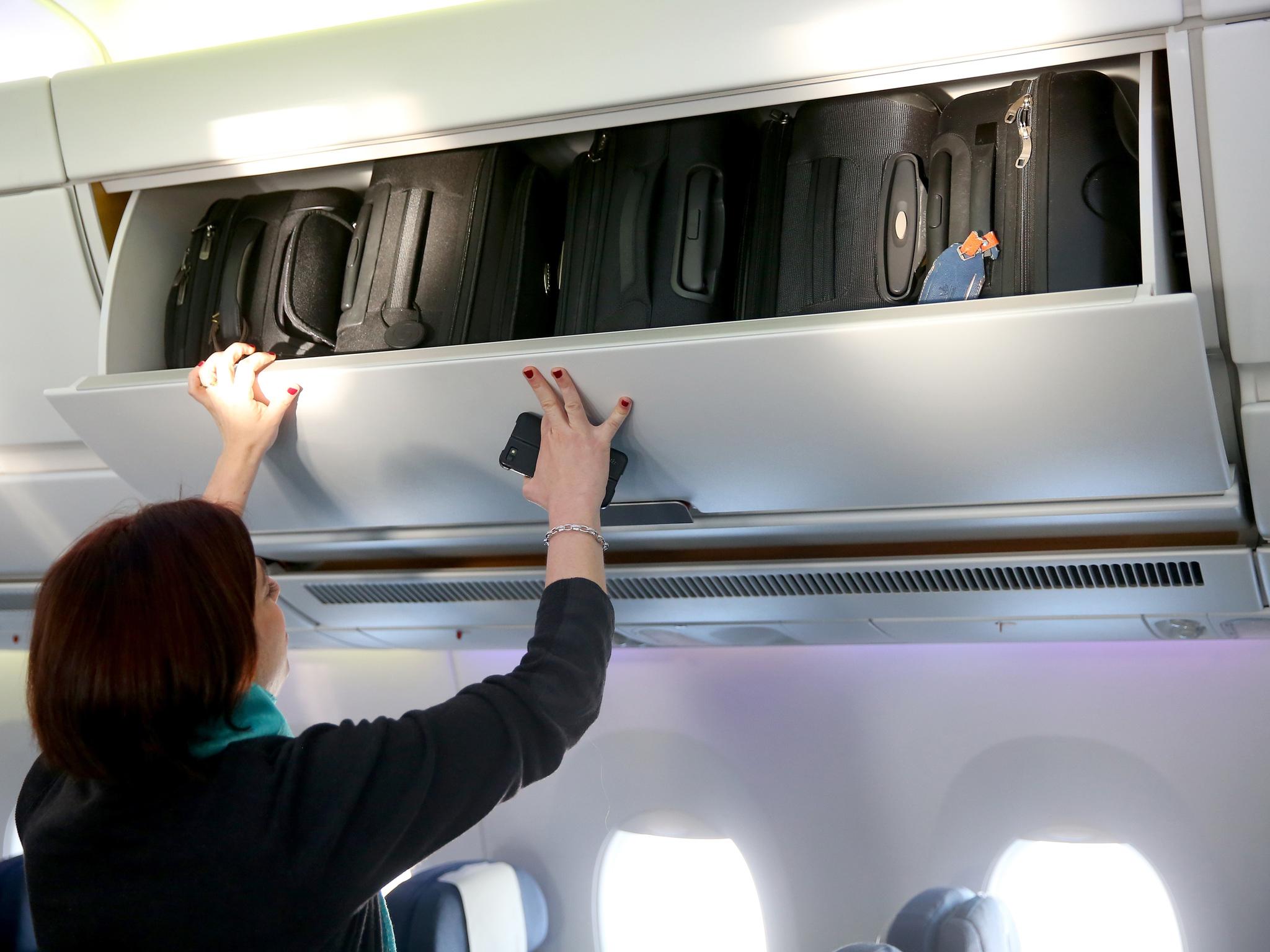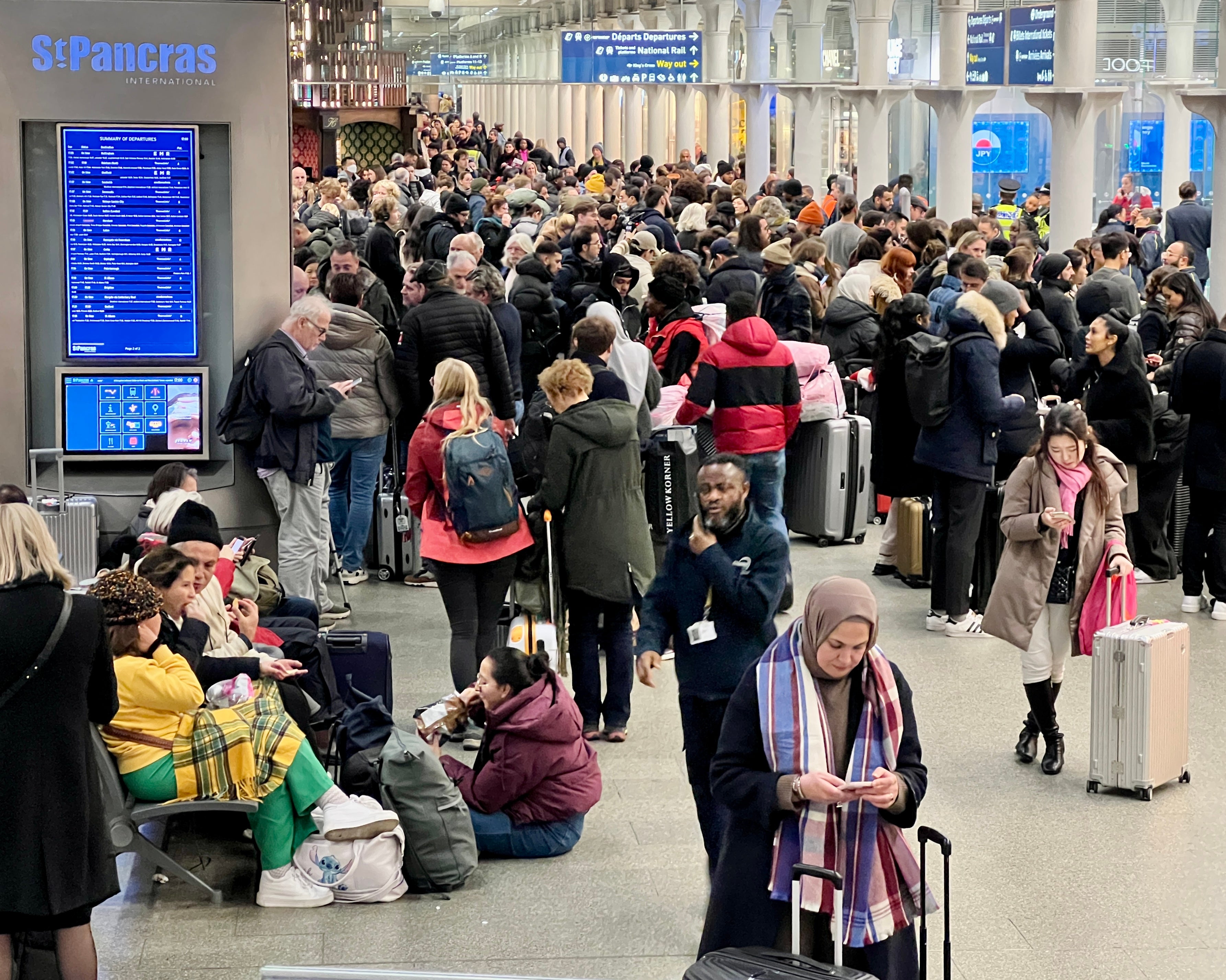I’ve got baggage! Is it fair airlines are still charging?
Simon Calder has the answers on confusing cabin bag allowance rules, and whether France really is going to loosen up visa rules for Britons living in France. And he gives his measure of just how bad travel disruption has been this Christmas


Q Please can you clear up the confusion regarding fees charged by airlines for cabin bags? I was under the impression that the European Union has outlawed airlines charging extra for a reasonable piece of cabin baggage. But on flights from France (where I live) to the UK, airlines are still charging.
Geoff W
A Your confusion is understandable – not least because the domain of cabin baggage is a strange land, with all manner of conflicting policies. Here’s a little history on this. Until 2006, cabin baggage was hardly an issue. All airlines allowed checked-in baggage for free (usually 20kg, sometimes 15kg, and British Airways 23kg). So there was little incentive to take cabin baggage only – beyond the usual benefit of reducing the risk of loss and accelerating your getaway from the arrival airport.
Then Flybe introduced a charge for checked luggage, and others swiftly followed. Fees have increased relentlessly since then, incentivising cabin-baggage-only trips. The three big budget airlines – easyJet, Ryanair and Wizz Air – have responded by reducing “free” cabin baggage to a small backpack. I am currently in Krakow using just such an allowance, but I know many people like to bring more. In some circumstances, a modest wheel-along can cost more than a human for a flight.
The European Court of Justice stepped in back in 2014 by deciding that fees for checked baggage were fair. But it added: “The court considers that baggage that is not checked in, namely hand baggage, must be considered, in principle, as a necessary item for the carriage of passengers. Consequently, the carriage of hand baggage cannot be made subject to a price supplement, provided that it meets reasonable requirements in terms of its weight and dimensions.”
The whole issue turns on what constitutes “reasonable requirements in terms of its weight and dimensions”. Budget airlines contend that their backpack allowance is perfectly good for an overnight stay and that allowing bigger bags for free would simply snarl up the system – there would not be room in the overhead bins.
Nothing has changed yet, though MEPs in the European parliament are pressing national governments to enforce the court decision. But no one knows precisely what it means.

Q I have read your article that France is offering a special visa for British property owners, to get around the “90/180-day” problem. We are some of the many victims of this limit on the length of stays. But we have been told categorically that it is EU legislation and that individual countries cannot amend it. So can you explain what is going on?
Diana G
A Yours is one of many responses I have had on the news this week that the French government is set to issue automatic long-stay visas to British people who have second homes in France. This will put an end to the miserable experience of many property owners over the past couple of years: being able to spend only three months at a time at their home, before heading back to the UK for a further three months as the 90/180-day rule requires.
A remarkable piece of legislation appears to be going through the French parliament, based on the notion that the British community, particularly in rural areas, is seen as an important part of the social fabric. “Many of [them] actively participate in the dynamism of the local economy,” the amendment to the immigration act reads.
You are quite right that the 90/180-rule is a central piece of EU legislation aimed at third-country nationals, the status that the UK negotiated for us. But all European Union nations are sovereign and can offer long-stay visas to anyone they like. These complement, rather than conflict with, the 90/180-day rule. Anyone with a long-stay visa for an individual country can stay in that nation without affecting the 90-day allowance for the whole of the rest of the Schengen area (comprising most of the EU plus Iceland, Norway and Switzerland). They are currently tough to obtain, though: slow, expensive and awkward. France wants to “fast-track” the process. If this courageous move goes through, I foresee other nations – particularly Portugal and Spain – doing something similar. Meanwhile, some smaller European nations are setting up “digital nomad” visas, but for these you will need to demonstrate a flow of income.

Q Is it me, or is every Christmas getting worse in terms of travel disruption? I know from what you’ve been writing that we’ve had problems from Storm Pia, a Channel Tunnel closure and widespread flight cancellations. Have you ever known it this bad?
Sue KA
A Given the sheer range of travel problems you outline, I understand some travellers feeling extremely anxious about their Christmas journeys. This is the time of year when travellers are most heavily invested emotionally in their plans, and are understandably hypersensitive about any possible disruption.
Sadly, tens of thousands of rail passengers endured a wretched Thursday and woke up on Friday where they really didn’t want to be. Around 25,000 were booked on the 30 Eurostar trains linking London with Paris, Brussels and Amsterdam that were cancelled due to the strike by Eurotunnel staff in France; many more found themselves stuck the wrong side of the blockages of the East and West Coast main lines. These were attributed to Storm Pia, which was also responsible for disrupting rail travel across northern Britain. The high winds triggered air traffic control restrictions at Heathrow, with British Airways inevitably bearing the brunt of thinning out the schedules as the “flow rate” reduced.
Yet on the Calder Scale of Travel Disruption, so far I rate late December 2023 as a 4. There are two key parameters for pre-Christmas travel chaos: the number of people affected and the time remaining before 25 December for people to sort themselves out. Much worse was the drone saga at Gatwick in 2018, when 1,000 flights were cancelled – representing 150,000 torn-up journey plans, at a time when seats on planes were at an extreme premium. Let’s call that a 7. Also at Gatwick, Christmas Eve 2013 saw the River Mole bursting its banks and causing a power outage at the North Terminal, with dozens of flight cancellations at very short notice. Thousands of people were obliged to spend 25 December in hotels in the Gatwick area. Another 7.
And possibly worst of all: the snow at Heathrow in 2010 which brought operations at the UK’s busiest airport almost to a halt. That is an 8 because of the numbers involved and (in most cases) an absence of any viable transport solution. I accept there is still time for 2023 to degenerate still further, but I believe almost everyone will be where they need to be in good time this Christmas.
Email your question to s@hols.tv or tweet @simoncalder






Join our commenting forum
Join thought-provoking conversations, follow other Independent readers and see their replies
Comments